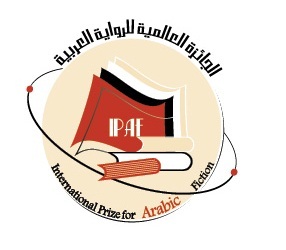
16 Dec 2010 01:01:25
Two Moroccans, two Egyptians, a Saudi and a Sudanese rounded out the list of authors in contention for the $50,000 International Prize for Arabic Fiction, with its guarantee of lucrative translations into English and other languages. The winner is announced in March.
The award, now in its fourth year, is one of many in the region but its association with the Booker Prize Foundation has given it an edge over others which are clearly associated with Arab governments, such as the UAE's Al-Owais Award and Saudi Arabia's Arab Thought Foundation awards.
The Al-Owais prize was infamously withdrawn from Iraqi poet Saadi Youssef in 2004 after he criticized Sheikh Zayed bin al-Nahayan, the founder of the United Arab Emirates, a Western-allied federation of dynastic monarchies in the Gulf.
The Arabic Booker has an elaborate structure of judges and board of trustees to ensure fairness, including Arabs of different nationalities based in the region and abroad as well as non-Arab literary experts and publishing figures. However, it remains financed by Abu Dhabi's Emirates Foundation.
"This prize is yet another indication of the corruption of Arab cultural life and the extent to which Arab oil money insists on dominating all aspects of life," said As'ad AbuKhalil, a Lebanese politics professor at California State University in the United States.
"This award has been criticized by many Arab writers and yet it continues with Arab oil money to award prestige to the UAE and its ruling families," he said.
Gulf rulers have stepped up efforts in recent years to patronize the arts and transform a region with a traditionally limited output in terms of cinema, theater, writing and other forms of expression into cultural centers.
Some efforts are globally accessible -- Abu Dhabi is setting up branches of the Louvre and New York's Guggenheim museums -- and some are regionally focused: This week Qatar opens a museum of contemporary Arab art, to add to its Islamic Museum.
The award, now in its fourth year, is one of many in the region but its association with the Booker Prize Foundation has given it an edge over others which are clearly associated with Arab governments, such as the UAE's Al-Owais Award and Saudi Arabia's Arab Thought Foundation awards.
The Al-Owais prize was infamously withdrawn from Iraqi poet Saadi Youssef in 2004 after he criticized Sheikh Zayed bin al-Nahayan, the founder of the United Arab Emirates, a Western-allied federation of dynastic monarchies in the Gulf.
The Arabic Booker has an elaborate structure of judges and board of trustees to ensure fairness, including Arabs of different nationalities based in the region and abroad as well as non-Arab literary experts and publishing figures. However, it remains financed by Abu Dhabi's Emirates Foundation.
"This prize is yet another indication of the corruption of Arab cultural life and the extent to which Arab oil money insists on dominating all aspects of life," said As'ad AbuKhalil, a Lebanese politics professor at California State University in the United States.
"This award has been criticized by many Arab writers and yet it continues with Arab oil money to award prestige to the UAE and its ruling families," he said.
Gulf rulers have stepped up efforts in recent years to patronize the arts and transform a region with a traditionally limited output in terms of cinema, theater, writing and other forms of expression into cultural centers.
Some efforts are globally accessible -- Abu Dhabi is setting up branches of the Louvre and New York's Guggenheim museums -- and some are regionally focused: This week Qatar opens a museum of contemporary Arab art, to add to its Islamic Museum.

